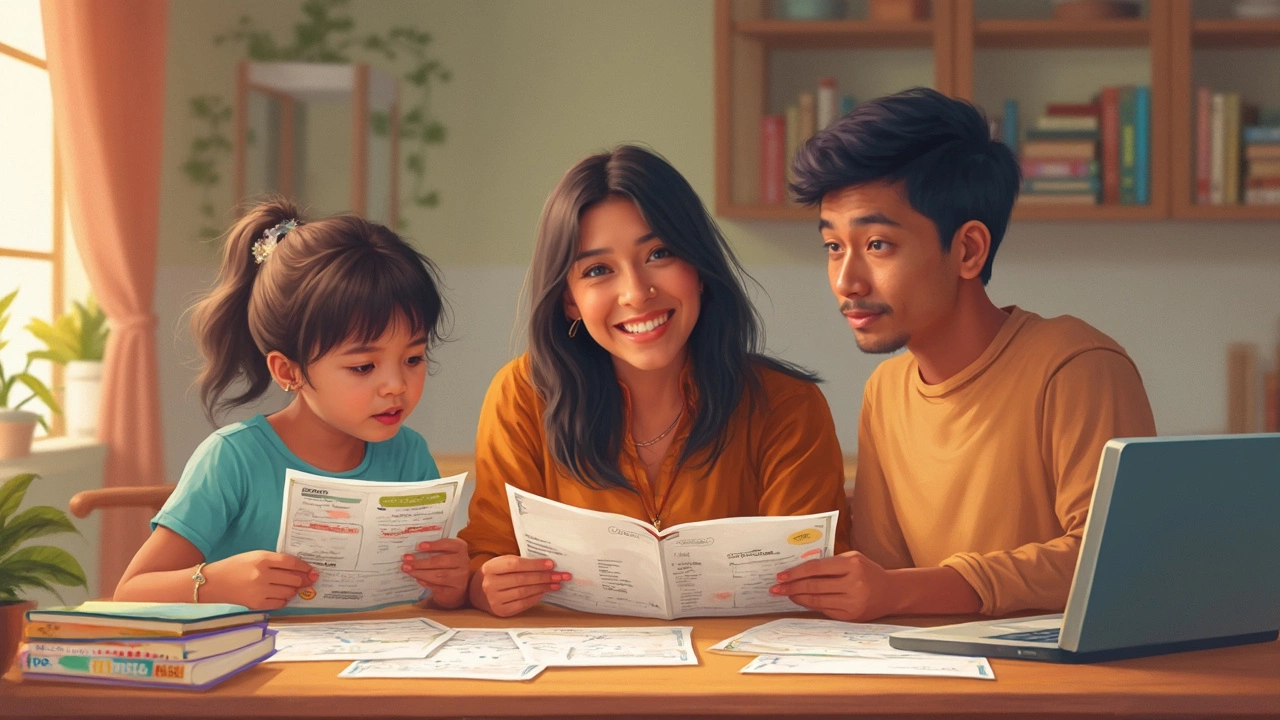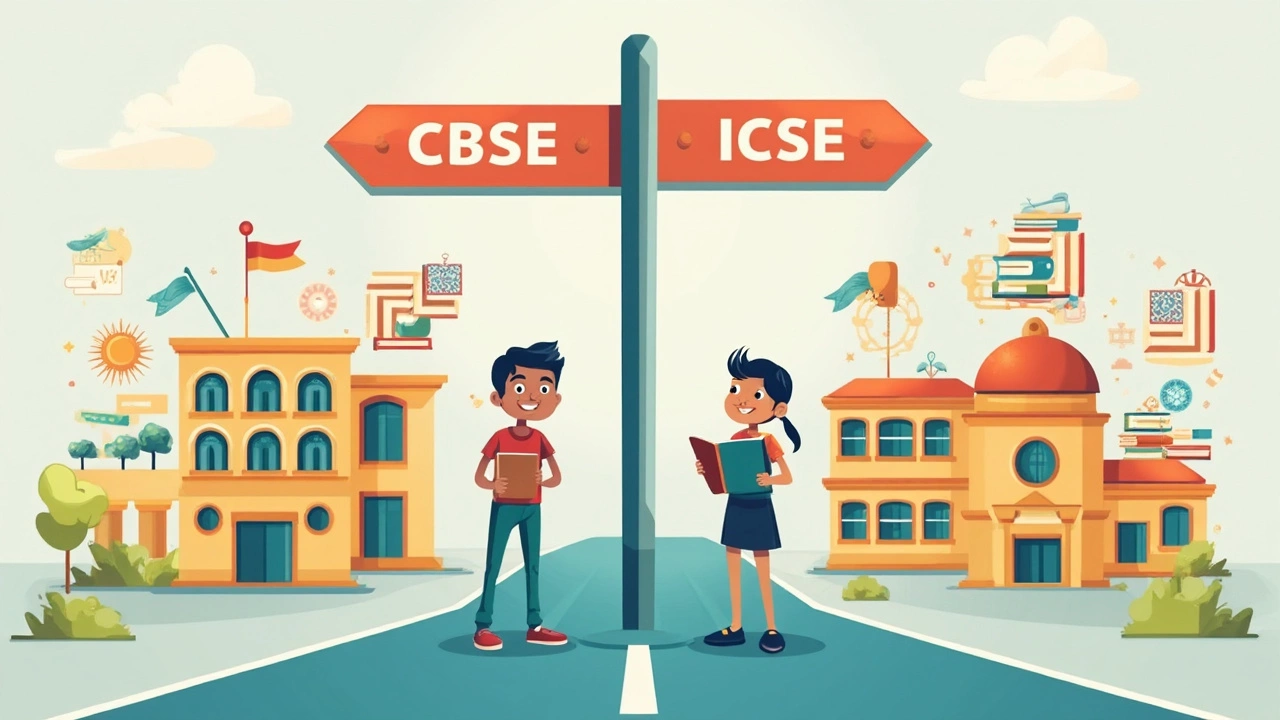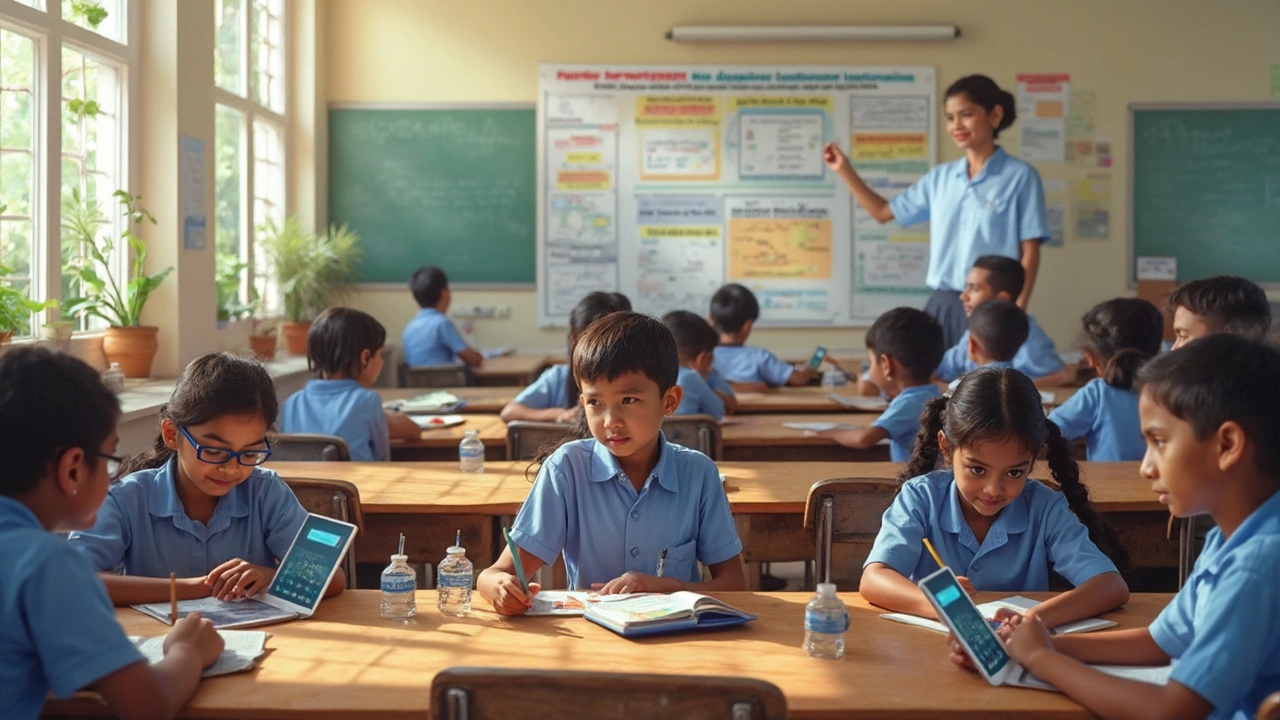It always surprises me how one of the most common questions parents ask isn’t about facilities, or even activities. It’s this: “Is Delhi Public School (DPS) CBSE or ICSE?” It matters to families in India, but also to expat and NRI parents like my cousins, itching for good old Indian academic grounding while living in Sydney. Truth is, this question packs a lot more into it than just a board name. It’s really about what kind of academics, thinking, and pressure-cooked opportunities you want for your child—and how you see their future playing out. On paper, it’s a technical detail. In practice, it’s the first domino in years of decisions ahead.
The Board Behind the Green Blazers: CBSE or ICSE?
Delhi Public School is legendary in India. It’s a brand unto itself, stretching from posh city suburbs to sleepy little towns. But if you look at their websites and prospectuses, you’ll spot the words Central Board of Secondary Education (CBSE) everywhere. That’s your first solid clue: Delhi Public School is officially affiliated with CBSE. No matter whether you’re looking at DPS R. K. Puram, Noida, Vasant Kunj, or other major branches, the curriculum, exams, and much of the ethos tie back to the CBSE system.
The CBSE, short for Central Board of Secondary Education, is India’s government-run board. It prescribes everything: the syllabus, exam formats, even the list of holidays in many cases. CBSE’s headquarters are in New Delhi, and it’s designed with India’s centralized, pan-national education approach in mind. So if your child tees up for Class 12 at DPS, they’ll be sitting the standard CBSE Senior School Certificate Examination—like millions across the country do every year.
So what about ICSE? The Indian Certificate of Secondary Education (ICSE), handled by the Council for the Indian School Certificate Examinations (CISCE), is a very different system. Some schools adopt it—but not Delhi Public School. You’ll never see a DPS running as a fully ICSE-affiliated school. A few DPS campuses offer the IB (International Baccalaureate) or IGCSE as an option in international hubs, but those are exceptions, not the norm. If you see Delhi Public School on your list, think CBSE unless lightning has struck and created a one-off, which—until today, June 25, 2025—hasn’t happened.
CBSE vs ICSE: What’s Actually Different?
These acronyms aren’t just labels—they hold up almost two different worlds of schooling. CBSE schools, like DPS, have a reputation for streamlining content to make things easier for large city classrooms and small village schools alike. Science and math get strong attention, sometimes with preparation woven in for engineering and medical entrance exams, which India prizes above pretty much every major exam (yes, even NAPLAN or ATAR look gentle in comparison!).
The ICSE system, on the other hand, goes deeper and wider in English, humanities, and creative subjects. It’s heavier on literature and project work, with a more UK-inspired teaching style. In depth, it’s like the difference between binge-watching a crime show and reading the whole detective series—CBSE is structured and efficient, while ICSE lingers and explores nuance.
- CBSE is better for competitive test prep (think JEE, NEET, and National Olympiads)
- ICSE focuses more on English fluency, practical assignments, and essay-style projects
- Both are recognized in India and internationally, but CBSE has wider government acceptance
Parents often debate which board’s pressure is worse, but here’s the thing: scroll through DPS alumni social media, and you’ll see equal numbers of future doctors, startup founders, and TEDx speakers—all groomed on CBSE syllabi, proving success doesn’t boil down to a board logo.

Why Delhi Public School Sticks with CBSE
The roots go deep. DPS was born in 1949 (yep, in the first breaths of independent India), and got in early with the CBSE system, which rolled out around 1962. The DPS Society, which oversees all branches, wanted every school—whether in Delhi or far in the south—to offer a standardized, comparable education. This makes it super easy for students to move cities between DPS branches without losing sleep.
Then comes the scale. CBSE is tailored for large classrooms and millions of students—DPS campuses are huge. Some, like R.K. Puram, host more than 9,000 students! Managing all that with the tighter, more specialized ICSE curricula looked nearly impossible. The CBSE approach let DPS scale up, share resources, and offer recognizable credentials across the board.
This setup also dovetails nicely with the dreams most parents have: high marks in board exams, easy migration between cities (or even out of India, since CBSE is accepted in the Gulf and Southeast Asia), and solid entrance for top government colleges. CBSE provided just that—a sort of golden highway for Indian middle-class aspirations. DPS never really saw a reason to jump ship to ICSE, even as other private schools chased boutique-style differentiation.
What Students and Parents Experience at DPS
If you expect endless rote learning and nothing but textbooks in DPS, you’ll be surprised. Modern DPS schools bring in robotics, international exchange programs, Model UN conferences, and a host of clubs for robotics and drama. But the base is still CBSE through and through.
Here’s what’s unique: CBSE’s structure means students spend a lot of time directly prepping for milestone exams at Grades 10 and 12. You’ll find tons of regular class tests, periodic assessments, and (in senior grades) extra coaching for engineering and medical competitive exams. Board papers, exemplar solutions, and model answers are almost like sacred texts. But at the same time, DPS encourages social projects, leadership roles (think School Captains), and talent competitions—something you won’t find as often in smaller ICSE schools.
- DPS alumni networks are massive—alumni mentoring and career help are big perks.
- Structured career counselling: DPS students often get sessions about everything from law to coding to alternative arts careers.
- CBSE, being more factual and less subjective, sometimes means fewer essay assignments compared to ICSE, but DPS has worked in a lot more debate and public speaking than it did 20 years ago.
The practical takeaway? While the core exams stay textbook-driven, DPS tries to deliver an all-rounder vibe—more science fairs, eco-clubs, and language labs than you might expect. But CBSE still calls the shots on what’s graded. If you crave loads of English Lit, Shakespeare recitations, or experiential learning modules, DPS isn’t strictly ICSE, but it’s working to bridge that gap where it can.

Tips for Parents: Choosing Between DPS, CBSE & ICSE
It’s easy to feel you’re almost buying a passport, not just picking a school. If you’re thinking DPS, you’re deciding not just on a brand, but also on the *type* of education—the daily grind, the exam style, the language usage, and the stress levels your child will carry. CBSE, as followed at Delhi Public School, suits certain families more than others, based on these facts:
- CBSE is best for families that move often or wish to transfer between cities or even countries—your child’s education won’t get disrupted.
- If professional competitive exams after Grade 12 are in your sights (engineering, medicine, or government jobs), a CBSE heavy-hitter like DPS makes sense.
- If you want a broader, more literature-friendly style and tons of project-based assessment, you might lean ICSE. But you’ll have to look beyond DPS for that option.
- Day-to-day school life in DPS is a blend: expect lots of exam-focused prep, but also more stage time and co-curricular than most other CBSE schools.
- Bilingual/multilingual learning is common (Hindi/English, sometimes a third language). ICSE schools may offer more foreign languages, but DPS pushes spoken English hard, given CBSE norms.
Quick tip: If your child is aiming for universities outside India (especially in the UK, US, or Australia), both CBSE and ICSE marks are generally recognized. The difference often comes down to subject choices and co-curricular profile. DPS grads, thanks to their mega alumni networks, often have a slight edge with peer recommendations as well.
| Feature | CBSE (at DPS) | ICSE (Other Schools) |
|---|---|---|
| Common Subjects | Maths, Science, Social Studies, English, Hindi | Maths, Science, Social Studies, English Lit & Lang, Foreign Lang |
| Exam Style | Objective + Short Answer | Essay-heavy, Project-based |
| Official Recognition | Govt. of India, global | Government & private only |
| Ideal for | Transferable jobs, entrance exam prep | Creative fields, deep subject learning |
| Affiliation in DPS | Yes | No |
If you remember just one thing: Delhi Public School means CBSE, every time. The debate between boards matters, but only when it fits what your child actually needs, not just what’s trending at the neighbour’s brunch. If you want reliable, tried-and-tested academics with the chance for your kid to be a well-rounded all-rounder, DPS and CBSE together are a strong bet.
